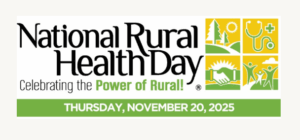October 8, 2025

CAP-CT Learning Collaborative, Apply by November 7
Identifying and engaging caregivers improves health outcomes and quality of life for both the person receiving care and their caregivers!
During this 12-month learning collaborative, participating health care delivery sites will pilot a care process of their choosing to help teams identify, engage, and support family caregivers. Participants will benefit from peer learning while advancing their own goals for improving caregiver support within their organization. Participants will also be supported by CAP-CT training and resources.
Outcomes from the collaborative will inform an implementation toolkit that will be shared widely to facilitate greater adoption of care processes that help health care teams identify, engage, and support family caregivers.
Why Participate:
- Align with national initiatives:
- Reinforce your organization’s commitment to Age-Friendly Health Systems, the GUIDE model, or other caregiver-inclusive models.
- Receive financial support:
- Offset participation with a stipend.
- Support and learn from peers:
- Engage in cross-system learning with other innovative organizations, and
- Gain recognition:
- Be featured in a publicly shared implementation toolkit.
Eligibility:
This collaborative is open to health care delivery sites in adult inpatient settings. Individuals from the participating sites should be in a leadership role with the authority to make operational or process improvements, e.g., for a department, division, unit, etc.
Participation Stipend:
Participating sites will be offered a stipend of $8,000 for the time spent engaged in the learning collaborative, as outlined in the participant expectations.
Apply by November 7, 2025.
Click Here to Learn More and Apply



